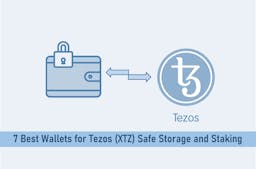
Best Insured Crypto Exchanges
The subject of cryptocurrency insurance has been a thing of pessimism by many insurance companies. Cryptocurrency is not a legal tender and is therefore not in the control of any government.
Crypto insurance is not even to be considered in jurisdictions where holding and mining are banned.
The volatility of Bitcoin for instance raises concern for regulators and as such while insurance companies prefer not to provide cover being a well-regulated industry.
A few Exchanges are warming up to this by partnering with insurance companies in providing minimal insurance cover for their clients.
Crypto Exchanges like Coinbase offer minimal insurance to clients’ funds known as Crime Insurance that covers a portion of clients’ funds held across storage systems loss from theft and any form of cyber threats.
Whether you are already a Crypto investor or new to it, we’ll examine Cryptocurrency Exchanges that offer some form of insurance cover on client’s digital assets.

Key Takeaways
• FDIC Insurance serves as the no. 1 insurance option for most insured crypto exchanges on the planet.
• Crypto.com offers low premiums and fees making it the most popular insured crypto exchange on the planet.
• Coinbase provides crime insurance protection on clients’ funds across all storage, protecting them from cyber crooks.
Let’s examine the best-insured crypto exchanges …
Best Insured Crypto Exchanges
1. Binance
In 2017, Malta-based Binance, was launched in China, and it is one of the world’s most popular crypto-commercial trades. For US nationals, Binance US was introduced in 2019 in San Francisco.
Binance enables you to purchase, sell and exchange bitcoin, which charges 0.1% for business. By holding your coins and earning an interest rate between 0.5 to 10% you can earn money on them for a while.
There are a lot of payment methods from which you can buy crypto with bank deposits, bank transfers, and credit/debit cards. But for debit card purchases, a high fee of 4.5% is levied.
As regards security precautions, Binance manages an asset fund as insurance in the occasion that user funds are stolen.
However, 50+ tradable coins are available at the Binance, so if you wish to trade Bitcoin, Ethereum, and other coins you have a ton of possibilities.
2. Coinbase
Launched in 2012, Coinbase has grown to more than 30 million users globally in San Francisco, California, with users in 103 different countries.
The main feature of this crypto exchange is unfavorable investors seeking Bitcoin businesses, thus it is ideal for beginners who are trying to learn the ropes without being bombarded throughout the screen with graphics and statistics.
Coinbase offers bank deposits, bank transfers, PayPal, and transfers by credit/debit card. However, for purchases of less than $200, the exchange has fairly costly $0.99-$2.99 charges, plus a supplementary 0.5% charge, depending on the traded amount.
In terms of security, Coinbase has FDIC insurance, which enables consumers to be adequately reimbursed if the company ceases to exist and cold storage is used to allocate 98 percent of using cash.
They have great features and wonderful odds; there is no better site than Coinbase if you want to start as a crypto-beginner.
3. Gemini
Gemini is a cryptocurrency exchange offering 20 cryptocurrencies and 25 fiat currencies, which was launched in 2014 in New York.
This exchange of cryptocurrency provides a bonus of $10 on Bitcoins traded or purchased for $100 and also runs a Gemini Earn campaign for customers to earn up to 3.5% of Bitcoins interest when saving crypto.
However, the deposit limit for Gemini accounts is $5,000 per day, and the deposit limit is $30,000 per month. Up to $100,000 daily can also be withdrawn.
For security, cold storage assets will be stored as FDIC-insured user funds.
A cost of 0.5% is, however, levied for transactions, and transfers charge a price of between 0.99% -1.49%. Compared to some of the greatest crypto exchanges, that’s fairly good.
4. Crypto.com
Crypto.com is a popular crypto-currency platform that was founded in 2016 and operates in Hong Kong and enables its customers to swap, buy, sell and spend. The site is the most popular because of its incredibly cheap fees of 0.04% to 0.20%.
Crypto.com lets you get a Non-Precautionary DeFi wallet with an independent app. You can connect that account to your main account to facilitate the movement of funds.
The exchange firm also offers a program named Crypto Equipment, which allows users to collect up to 12 percent of their coins for 1 or 3 months of renewable time.
The more interest you generally have, the longer you stake.
Crypto.com said that it has secured a total of $360 million for physical damage or destruction and theft insurance for cold storage.
5. Robinhood
Robinhood was launched in 2013 and is based in the US as a stock traders’ broker. In 2018, however, it began selling crypto services and called on mostly young and inexperienced investors who wanted to try to trade cryptographically.
The crisis exchange, which currently offers 7 major cryptocurrencies, is known for its convenient mobile app design and no crypto-trade charges.
Robinhood declared that their assets are insured against losses and robbery by Lloyd’s.
6. Kraken
Kraken was launched and restarted in 2011 with its headquarters in the United States. The trade now has 50+ coins, so you have plenty of trading possibilities.
Kraken offers three account packages: starter, intermediate and professional. Deposits, trade, and the withdrawal of cryptocurrencies can be made via the starting account.
You must submit an ID for each account verification deposit that is safe, and 7 fiat currencies are accepted which are USD, EUR, CAD, GBP, CHF, JPY, and AUD.
7. Bisq
Bisq was initiated in 2014 and is a decentralized interchange, with servers scattered throughout the world, instead of a single headquarters. In other words, somebody can’t steal your money.
Bisq offers 120+ and a lot of fiats as well.
Unlike other exchanges, because Bisq needs no checks, Bisq does not need personal user information.
A crypto trader places an order to collaborate with another trader or someone else places an order. Although there are numerous payment options accessible, traders must agree on how to collect payments.
A trader making an order pays a 0.1% commission and a trader taking the offer pays a 0.3 percent fee, which makes it at least roughly 0.00005 Bitcoins in charges.
SEE ALSO: Can you Insure Cryptocurrency in 2021?
Frequently Asked Questions (FAQ)
1. What is a Crypto Exchange?
A crypto exchange is a platform where you can buy, sell, trade, earn, swap, stake cryptocurrencies like Bitcoin, Ether, Dogecoin, and other altcoins.
2. What’s the difference between a Crypto Exchange and a Crypto Wallet?
A crypto wallet is a digital safe akin to your physical wallet where cryptocurrencies are kept safely. While a crypto exchange provides you with that medium to buy and sell cryptocurrencies seamlessly. Ledger, Trezor, and BitBox02 are very good and popular once with advanced security features to protect your coins.
3. How to buy Cryptocurrency?
You open an account with any of the crypto exchanges out there, you then fund your account with any given amount of your choice and then use that to purchase any cryptocurrency of your choice. You can check these top 10 crypto exchanges to buy Bitcoin.
4. How does a Crypto Exchange work?
A crypto exchange works just like a brokerage service. It provides you with portals where you can predict the prices of cryptocurrencies with other users or engage in cryptocurrency trading.
Final Thoughts
Crypto exchanges are beginning to understand why insurance is important and how it accounts for events whereby individuals’ accounts get hacked and their coins get stolen.
Presumably in the future, insured crypto exchanges would see an improvement and would private more options to individuals in terms of what they can insure and what they cannot.
Read More




